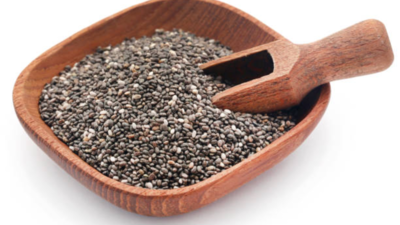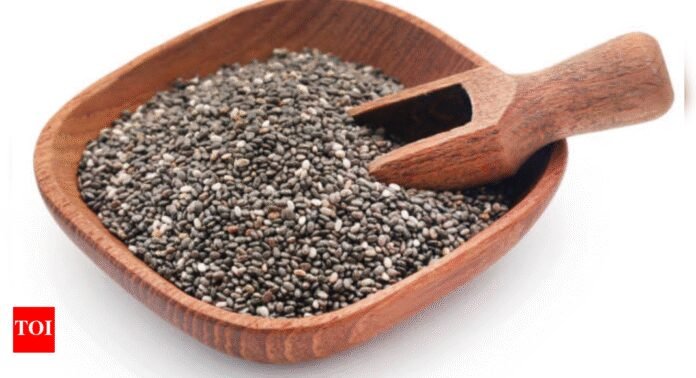Can Chia Seeds Help with Fatty Liver?

Chia seeds are everywhere these days. You see them in smoothies, salads, and puddings. Many people call them a superfood. Some even say they can help your liver, especially if you have fatty liver disease. But can a small spoonful of chia seeds really help?
What is Fatty Liver Disease?
Fatty liver disease happens when too much fat builds up in your liver. This can be caused by drinking too much alcohol or by eating poorly and not exercising enough. Often, there are no early signs. But over time, it can make you feel tired, cause inflammation, and even lead to serious liver damage.
Doctors usually suggest losing weight, exercising, and eating better. This means cutting down on sugar and unhealthy fats. But can chia seeds help?
Why Are Chia Seeds Good for Your Liver?
Chia seeds are tiny but packed with nutrients. They have lots of fiber, omega-3 fatty acids, antioxidants, and plant-based protein. These nutrients are good for your overall health, but some are especially good for your liver.
- Omega-3s: These help reduce fat and inflammation in the liver.
- Fiber: This helps control blood sugar and insulin levels, which can reduce fat storage in the liver.
- Antioxidants: These fight oxidative stress, which can worsen fatty liver disease.
So, chia seeds do have nutrients that support liver health. But they can’t fix your liver magically.
The Truth About Liver “Detoxing”
Your liver is your body’s built-in detox machine. It doesn’t need to be “detoxed” by a single food. When people talk about detoxing the liver with chia seeds or other trendy foods, they often misunderstand how the liver works.
What your liver needs is support, not a miracle cleanse. This support comes from reducing toxins like alcohol and excess sugar, eating healthy foods, and maintaining a healthy weight. If chia seeds are replacing unhealthy snacks in your diet, that’s great! But don’t expect them to fix years of damage on their own.
What Does Science Say?
Some studies have looked into chia seeds and fatty liver. The findings are promising but not conclusive. For example:
- A study on rats showed that chia seeds reduced liver fat in rats fed a high-fat diet.
- Another study on humans found that chia seeds helped reduce belly fat and improve metabolic markers like triglycerides and insulin resistance.
However, there isn’t enough large-scale human research to prove that chia seeds can reverse fatty liver. Most of the benefits likely come from chia seeds helping with weight loss, insulin sensitivity, and inflammation—all important for managing fatty liver disease.
In short, chia seeds aren’t medicine, but they can be a helpful part of a healthy lifestyle.
Should You Include Chia Seeds in Your Diet?
If you’re trying to improve your liver health, chia seeds can definitely help. Their fiber helps you feel full longer, which can aid weight loss. Their omega-3 content helps reduce inflammation. Plus, they’re easy to add to your diet—mix them into oats, smoothies, yogurt, or even your meals.
Just remember, moderation is key. Chia seeds are high in calories, so stick to one to two tablespoons a day.
Beware of Unrealistic Claims
If someone tries to sell you a “fatty liver detox chia cleanse,” be cautious. These quick-fix solutions are often more about making money than helping your health. The truth is, no single food can cure fatty liver. What works best is a balanced diet, regular exercise, good sleep, and consistency over time.
While chia seeds are great, they shouldn’t be the only healthy food in your diet. Other foods like leafy greens, berries, turmeric, fatty fish, and green tea also offer benefits for your liver. A variety of nutrients is always better than relying on one food.
Conclusion
Chia seeds can be a helpful addition to a diet aimed at improving liver health. They support your liver with their fiber, omega-3s, and antioxidants. But they aren’t a cure. Keep eating them if you enjoy them, but pair them with other healthy foods, regular exercise, and check-ups with your doctor.



